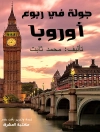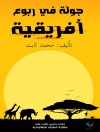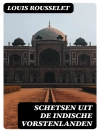Augustus Henry Irby’s ‘The Diary of a Hunter from the Punjab to the Karakorum Mountains’ is a captivating account of a journey into the untamed wilderness of the Karakorum Mountains. Written in a descriptive and immersive style, the book provides vivid imagery of the flora, fauna, and the majestic landscapes encountered during the expedition. Irby’s detailed observations and encounters with local tribes add depth and authenticity to the narrative, making the reader feel like they are on the journey alongside the author. Set against the backdrop of British colonial rule in India, the book offers a unique insight into the exploration and adventure of the era. Irby’s literary style is both informative and engaging, making it a valuable read for those interested in travel literature and historical accounts of the region. Augustus Henry Irby’s background as a seasoned explorer and hunter in the Indian subcontinent undoubtedly influenced his decision to document this remarkable journey. His firsthand experiences and passion for the wilderness shine through in the pages of this book, providing a valuable perspective on the natural beauty and challenges of the Karakorum Mountains. ‘The Diary of a Hunter from the Punjab to the Karakorum Mountains’ is a must-read for history buffs, adventure enthusiasts, and anyone with a thirst for exploration and discovery.
A propos de l’auteur
Augustus Henry Irby, an individual often less recognized among the plethora of nineteenth-century travelers, established a modest yet significant niche within travel literature through his sole book, ‘The Diary of a Hunter from the Punjab to the Karakorum Mountains.’ This work not only chronicles Irby’s experiences during his big game hunting expeditions in British India but also offers a captivating glimpse into the rich biodiversity and intricate socio-cultural tapestries of the sub-continent. Irby, an ardent hunter, meticulously recorded his observations, which were hallmarked by vivid descriptions and a keen understanding of wildlife. The diary, published in 1863, stands out for its raw portrayals of the challenges faced by hunters, the rugged landscapes traversed, and the primal beauty of nature untamed. Irby’s prose, while not ornate, is engaging and imbued with the authentic voice of a traveler genuinely enchanted by his surroundings. His work serves not only as a historical record of hunting practices but also as a valuable source for researchers delving into colonial-era attitudes toward exploration and the environment. Despite a relatively limited output, Irby’s literary contribution is cherished for its directness and raw authenticity, qualities which endear ‘The Diary of a Hunter from the Punjab to the Karakorum Mountains’ to both historical and environmental scholars.












